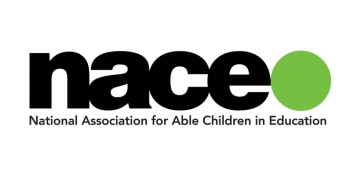The Association of Colleges’ manifesto has called for new levy funding restrictions on employers.
The document was unveiled this afternoon by the AoC, led by chief executive David Hughes (pictured).
Of key interest is the commitment to “reduce the proportion of the levy available to employers to 75 per cent”.
It added the “available resources” freed-up by this, should tackle challenges, such as improving quality, incentivising progression and addressing regional disparities.
The document also highlighted the need to “move away from a numerical target for apprenticeship starts”.
This comes after the drive to create 3 million apprenticeships starts, following the Conservative Party’s 2015 manifesto commitment, sparked criticism that quality was being sacrificed in the push to get as many learners on board as possible.
The AoC has called for the new focus to be on job and career outcomes for apprentices, and improvements in productivity and retention for employers.
This is in contrast to the Association of Employment and Learning Providers’ manifesto, unveiled earlier this month, which called on the next government to commit to 4 million quality apprenticeships over the life of the next parliament.
The AoC also wants the new government to encourage employers and incentivise colleges to “support more apprenticeships at level three as a minimum end point and ensure they commit to 20 per cent off-the-job training for apprentices”.
The manifesto added the government should “ring-fence 16 to 18 education funding at £7 billion in 2017, rising to £7.5 billion in 2022”, and “engage employers, public authorities and colleges locally in skills devolution”.
There is also a call to establish a new system of personal learning accounts, which “give individuals a single budget at age 18 with flexibility over courses, levels, modes (including part-time and distance learning) and length of learning, with more choice about the qualifications they can achieve”.
AoC would like the government to work with the Student Loans Company scheme to develop a new account into which people can make payments, separate from loan repayments, and which employers can invest into as well.
Immigration also features, with the opening section stating: “For all of us in education, Brexit poses challenges but also offers great opportunities.
“Many companies and organisations have relied for too long on recruiting people from the EU (and beyond) rather than training and developing the current workforce.
“That reliance has to end. As a country, we need to be outward looking and welcoming to people from all backgrounds, but we must do this from a position of strength where we are self-sufficient in skills.
“A post-Brexit UK needs a new culture of lifelong learning to become the norm in all communities, for all people.”
The manifesto further calls on the government to establish a “sensible approach to immigration” to ensure that the thousands of EU teachers in colleges are able to continue to work here.
Reflecting on the manifesto, Mr Hughes said: “Colleges are vital for delivering the education and training needed for people of all ages.
“They boost productivity, strengthen the economy and they are eager to deliver more in Brexit Britain.
“After years of under-investment the next government needs to support colleges to develop a culture of lifelong learning in which every young person and adult has opportunities to learn throughout their lives.”







you cant help thinking that the HE and FE sector are hoping the changes mark the end of the Independent Provider……Personally it would be good to see somebody call for a collaborative approach across all deliverers of post 16 skills